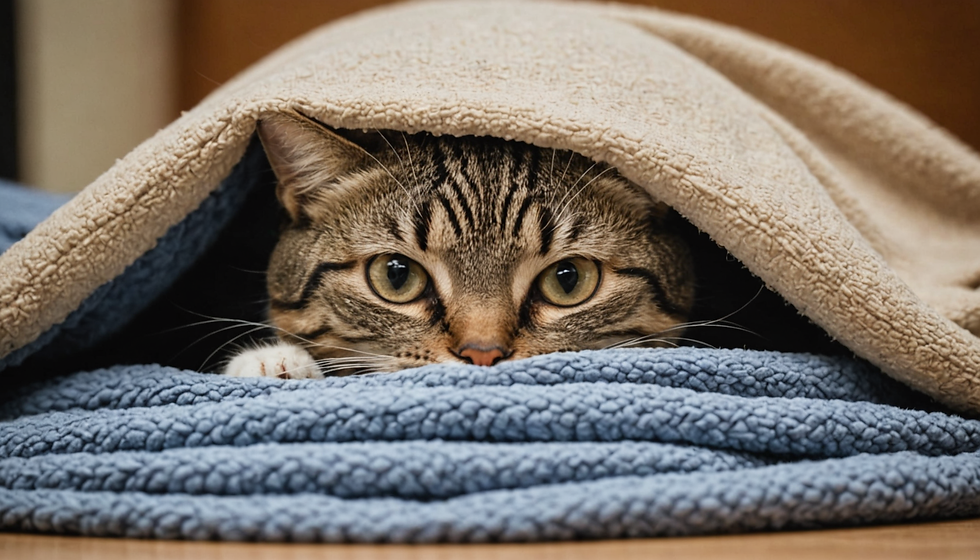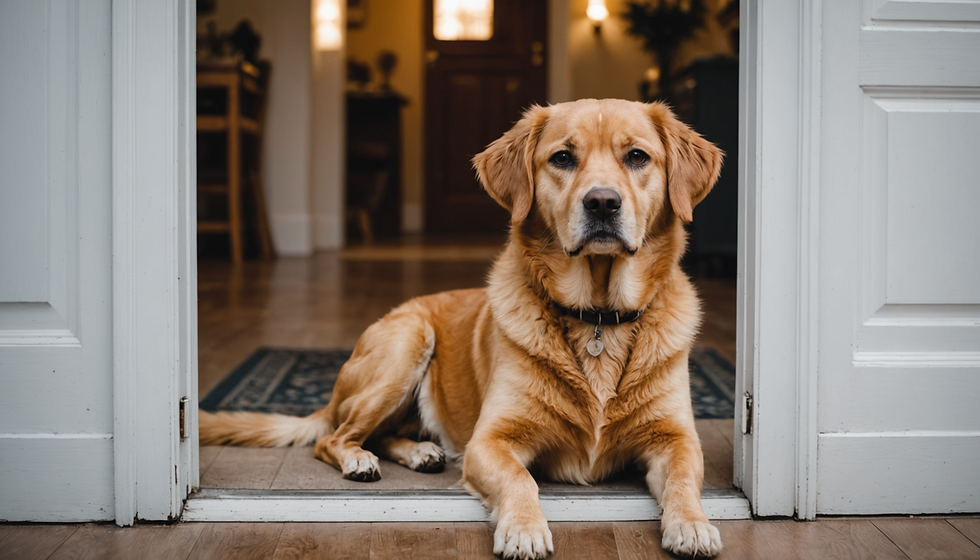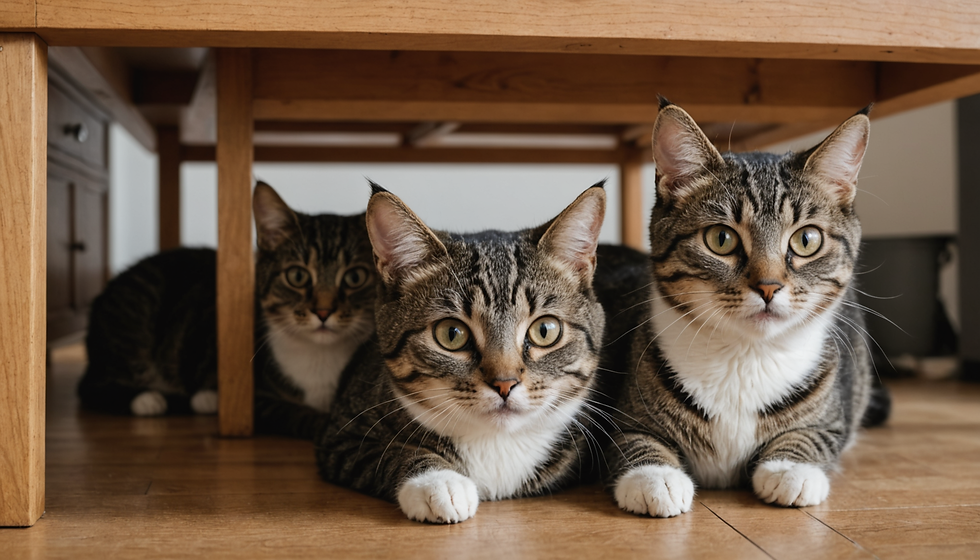Understanding and Managing Separation Anxiety in Pets
- Em
- Feb 3
- 3 min read
Separation anxiety is a common behavioural issue in pets, especially in dogs and, to a lesser extent, cats. It occurs when pets become overly attached to their owners and experience significant stress or anxiety when left alone. This can lead to various unwanted behaviours, but with proper understanding and management, you can help your furry companion feel more secure and comfortable when they are by themselves.

What Is Separation Anxiety?
Separation anxiety in pets manifests when they experience extreme distress at being separated from their owners. It’s more prevalent in dogs, as they are naturally social animals that thrive on companionship. However, cats can also develop attachment issues and show signs of anxiety when their owners are away.
Common signs of separation anxiety include:
Excessive barking or howling when left alone.
Destructive behaviour such as chewing furniture, scratching doors, or digging.
House soiling despite being potty trained.
Pacing or restlessness when they sense you are about to leave.
Excessive drooling or panting, especially in dogs.

Causes of Separation Anxiety
Several factors can contribute to separation anxiety in pets:
Changes in Routine: A sudden change in your schedule, such as returning to work after an extended period at home, can trigger anxiety.
New Environment: Moving to a new home or a different living environment can cause stress in pets.
Loss of a Companion: The loss of a family member or another pet can lead to increased attachment and anxiety.
Lack of Early Socialisation: Pets that were not exposed to periods of being alone during their formative months may struggle with independence later in life.

How to Help Your Pet Cope with Separation Anxiety
1. Gradual Desensitisation
This technique involves getting your pet used to being alone in small, manageable steps:
Start Small: Begin by leaving your pet alone for short periods, gradually increasing the duration as they become more comfortable.
Practice Departures and Returns: Make leaving and returning home a low-key event to reduce excitement and anxiety.
2. Create a Safe Space
Provide a designated area where your pet feels safe and secure when you’re not around:
Comfort Items: Include familiar items such as their bed, favourite toys, and an item of your clothing.
Background Noise: Leaving a radio or TV on can provide a sense of normalcy and reduce feelings of loneliness.
3. Offer Mental and Physical Stimulation
A tired pet is less likely to feel anxious:
Exercise: Regular physical activity helps reduce excess energy and stress.
Interactive Toys: Puzzle feeders and chew toys can keep your pet occupied while you’re away.
4. Use Positive Reinforcement
Reward calm behaviour to reinforce that being alone is not a bad experience:
Treats and Praise: When your pet remains calm as you leave or return, offer treats and verbal praise.
5. Consider Professional Help
If your pet’s anxiety is severe, consult with your veterinarian or a professional animal behaviourist. They can recommend behaviour modification strategies or, in some cases, anxiety-reducing medications.
Preventing Separation Anxiety in Pets
Prevention is always better than cure. Here are some tips to help prevent separation anxiety from developing in your pet:
Encourage Independence: Teach your pet to enjoy alone time by providing activities and toys that keep them engaged.
Regular Socialisation: Expose your pet to different people, environments, and situations from an early age.
Consistent Routine: Maintain a consistent daily routine for feeding, walks, and playtime.
We’re Here to Help

At Goodna Vet, we understand how distressing separation anxiety can be for both pets and their owners. Our compassionate team is here to offer guidance, support, and tailored solutions to help your furry friend overcome their anxiety.
If you’re concerned about your pet’s behaviour or need advice on managing separation anxiety, don’t hesitate to reach out to us. Together, we can ensure your pet feels safe, happy, and secure—even when you’re not home.
Let’s work towards stress-free days for both you and your beloved companion!
